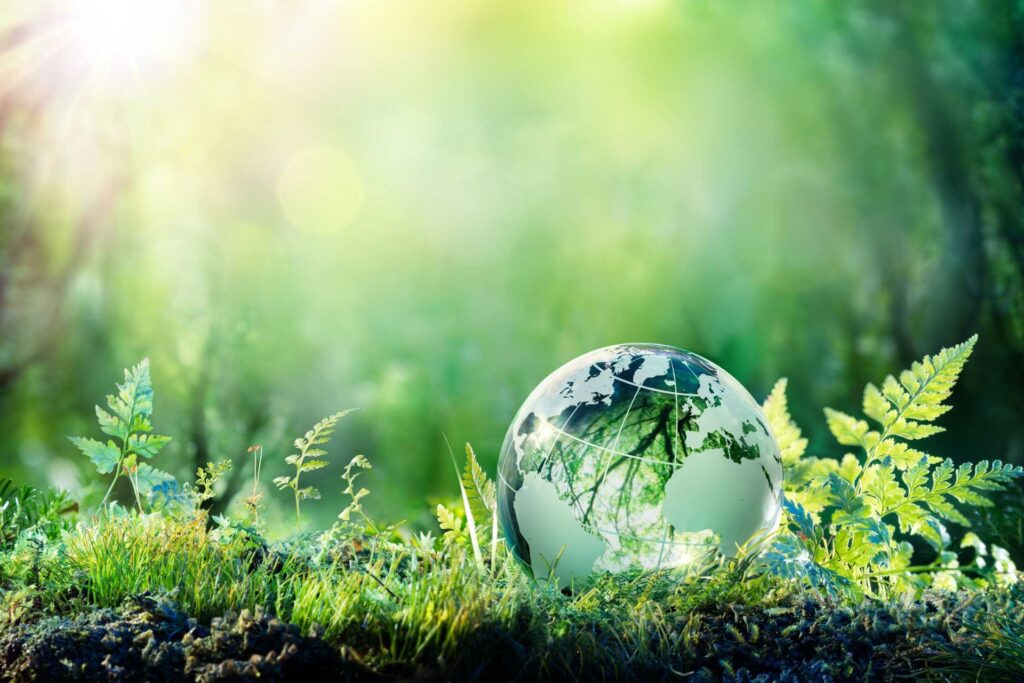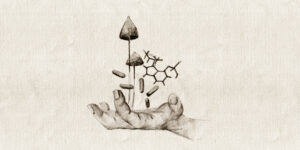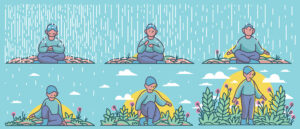Many personalities of the modern era – authors, artists, philosophers – reflect on the current state in which we globally find ourselves, not only from an ecological perspective but also from the stage of development and the psychological state of humanity. Among them are Thomas Berry (author of books such as The Dream of the Earth or The Great Work), philosopher Charles Eisenstein (author of Climate: The New Story), David Attenborough (main presenter and author of the Netflix documentary series Our Planet), philosopher Arne Naess (ideas of the Deep Ecology movement), David Abram – author of ideas associated with the awareness of the world beyond the human frame, and many others such as G. Tyler Miller, Derrick Jensen, Freya Mathews, Andreas Weber, Hildegard Kurt, and many more.
Voices pointing out the degradation of our existence on all fronts are becoming more and more frequent. Indeed, there are aspects of existence that are developing and flourishing. The question remains as to whether we can secure something beyond comfort and a quality of life that seems to lose its meaning in the face of the crisis associated with the possible extinction of our and other species.
The intention of this article is to somewhat ruthlessly examine the current situation, the interconnectedness of an individual’s inner world and outer world, and introduce the philosophical concept of deep ecology. We will also be reflecting on the role that psychedelics play, or could play, in this scenario. However, some considerations go even deeper, so a warning: it’s not for the faint-hearted.
Mental Imbalance of Humanity
Previous articles in this series have introduced a variety of perspectives on psychedelics, along with alarming statistics concerning the number of people suffering from depression or other mental illnesses (about every 4th person on the planet). Even worse, a third of them do not receive treatment that helps to alleviate their suffering. They remain without help, de facto without hope. Approximately one-third of this third will attempt suicide during their lifetime.
In the field of psychiatry, we only very rarely encounter completely cured patients. One must wonder if we are approaching mental illnesses correctly. Often, modern methods of care do not aim for healing but instead focus on reducing pain, eliminating symptoms, and numbing. The blame cannot lie solely with the application of psychiatry. Patients themselves repeatedly come to professionals, begging for help, while emphasizing, “Just make sure that I don’t have to deal with anything.”
This approach resembles fixing a flat tire on a long bike ride: while many patches can be applied to the tire, eventually further makeshift repairs are not enough. When the tire becomes worn and overly patched, it is time to replace it. Unfortunately – and fortunately – in the case of a human soul, this is not possible.
Earth and Its Health
If a person with a connection to nature starts to take an interest in facts pointing to the state of our planet, they will likely quickly stop or end up with depression. Disaster follows disaster, and predictions are not positive in any way. Glaciers continue to melt, fossil fuels are still widely used, plastics do not decompose, forests are being cut down, biodiversity is decreasing, plankton is dwindling, the planet is warming, and the climate clock is relentlessly ticking. The tipping point is knocking on the door, and we still collectively pretend that it is not happening.
Reflection leads to the shared tendency of our conscious human species to avert our gaze whenever deep pain is involved, whether ecological or internal. We flee from the awareness of the current state, its causes, and the necessary solutions because they are painful. In a sense they are “a demanding existential experience” in and of themselves.
In 2019, a study entitled “From Egoism to Ecoism” was published, with its introductory paragraph stating: “It seems that people are increasingly disconnected from their natural environment, which is directly related to dismal mental health as well as ecological destruction. “No matter how we look at this statement, the interconnectedness is evident. Humanity has lost contact with itself and therefore with nature, from which it originates – and humanity is not well. From another perspective nature is in a dismal state, and humanity is suffering as a result.

The Movement of Deep Ecology
In 1973, the philosophical space welcomed the Deep Ecology movement, which was given life by the Swedish philosopher Arne Naess when he published an article that could be translated as Shallow and Deep, the Far-Reaching Dimension of the Ecological Movement: A Summary. Shallow, in this context, refers to the uncomfortable truth that the creation of new technologies, ending the use of fossil fuels, practicing conservation biology, and striving for simplicity – although important and necessary – only treat the symptoms. Naess formulated principles of the ecological movement fifty years ago that today most ears remain completely deaf to. Principles that deeply challenge the intention and meaning of human actions.
The deep ecology movement suggests that the real starting point for healing the social and environmental crisis is self-confrontation, self-reflection, and exploration of the worldview that influences our attitudes and behaviors. Behind this movement are 8 principles Naess consulted with many experts worldwide to compile this list, and in his publication he mentions that most of them resonate with him. However, resonance does not mean that people will embrace and implement them into their lives and cosmology.
8 Principles of Deep Ecology
#1 The well-being and flourishing of human and non-human life on Earth have intrinsic value (synonyms: intrinsic value, inherent value) regardless of their usefulness to humans.
#2 The richness and diversity of life forms contribute to the relationship of these values and are also values in themselves.
#3 Human beings do not have the right to limit this richness and diversity, except to satisfy vital needs.
#4 The flourishing of human life and culture is intertwined with a significant reduction in the human population. Such a decline requires the flourishing of other life forms.
#5 Current human interference with the surrounding world is excessive, and the situation is deteriorating rapidly.
#6 It is necessary to change policies. Policy influences the fundamental economic, technological, and ideological structures. The resulting state of affairs will differ profoundly from the current state of affairs.
#7 Ideological change primarily involves appreciating the quality of life (which resides in situations of natural value) rather than adhering to a high and ever-increasing standard of living. There is an awareness of the difference between the large and the significant.
#8 It is the duty of those who subscribe to the above points to directly or indirectly attempt to implement the necessary changes. This principle emphasizes the importance of deep questioning as a process that follows/develops/applies the other principles.

The Earth is not owned by people
In the book “Living in the Environment,” G. Tyler Miller expressed four principles from which modern society derives:
#1 People are the source of all value.
#2 Nature exists only for our use.
#3 Our primary purpose is to produce and consume.
#4 Production and consumption must continually increase because we have the right to an ever-increasing material standard of living.
He himself acknowledges that most of us would probably not accept all these statements, but he adds that collectively and individually, corporately and governmentally, we act as if we have accepted them – and that’s what matters.
Psychedelics in Healing the Relationship with Earth
The results of a study conducted by English scientists showed that “greater experience with psilocybin predicts a closer relationship with nature compared to users of other substances, as well as non-users.” Sam Gandy, one of the study’s authors, agrees and adds that deepening the relationship with nature can have positive effects on a person’s mental health and well-being.
Arne Naess, after his psychedelic experience, noted that he perceived how psychedelics (specifically LSD) deepened his ability to empathize with things in depths and intensities that were previously inaccessible to him. However, he added that where his experience of depth had already touched, the psychedelic experience did not deepen the experience.
If a person has lost the ability to connect with nature on a deeper level, to perceive how inseparable our existence is from nature, then perhaps psychedelics could help strengthen this connection. Perhaps psychedelics can help foster awareness that there will be no humans without the planet, that there is no life without nature.
Ralph Metzner, a pioneer in psychedelic research, declared that psychedelics can serve “as a catalyst for a new culture of expanding consciousness.” According to him, this new culture includes movements for human rights, anti-war activism, sexual revolution, empowerment of women, creative innovations in art and technology, and in ecological matters.
The psychedelic experience allows us to experience insights of mystical and visionary nature, and it is not uncommon for them to reflect the state of humanity, the consciousness of the Earth, or the dimensions of community and cosmic unity. It is precisely these experiences of unity with everything that play a significant role in helping us to realize how utterly inseparable we are from nature and vice versa.
According to the Deep Ecology movement it is absolutely essential that we seek ways to live in symbiosis with the planet and all living organisms. Can we achieve this without halting our quest for the endless growth of humanity’s prosperity? Can we do this while also radically reducing the demands for comfort and quality of life that we demand at the expense of other living organisms?
In 1980, part of the declaration of the International Union for Conservation of Nature and Natural Resources (IUCN) was: “For human society to live in harmony with the natural world on which survival and prosperity depend, a new ethic is required that includes plants and animals as well as people.”Naess, in response, commented, “Such an ethic would surely be more effective if it was followed by people who believe in its validity rather than those who merely believe in its usefulness.”



